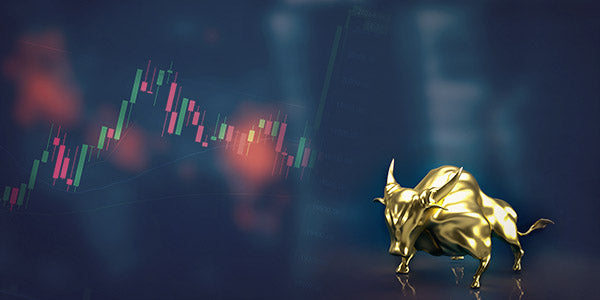
+91 80 41281 383 • Srinivasam, No. 20, 9th Cross, 6th Main, Malleshwaram, Bengaluru

About 70% of Asia's biggest companies lost value in the first two months of Russia's invasion of Ukraine, with investors spooked by the economic fallout from the war and the impact of tough new COVID-19 lockdowns in manufacturing powerhouse China.
The market capitalization of prominent Asian firms dropped as high raw material costs and supply chain concerns from the Chinese lockdown weighed in on manufacturers. But the value of energy and commodity companies in India, Thailand and Malaysia rose as their outputs commanded higher prices.
Is this the end of globalization?
Between Feb 23rd (a day before Russia attacked Ukraine) and Apr 22nd, 627 companies with valuations of over $10 billion (as of Feb. 23rd) saw a massive shift.
31% increased their market cap while 69% lost value over the two months!
Prior to the war, the global stock markets factored in the U.S. Fed’s decision to tighten monetary policy. The invasion stoked market uncertainty, directly hit economies closely linked to Russia and sparked a global surge in energy and wheat prices.
Chinese economic expansion has been slowing, with import growth slumping to almost 0% year-on-year in March 2022, while higher U.S. interest rates amount to a tightening of global financial conditions that look likely to stymie growth in America and beyond later this year. High-priced tech stocks are among the most vulnerable to interest rate hikes since such rises curb the relative value of their future earnings.
Demand for digital-based services such as e-commerce could grow where people's movements are restricted but would those digital tech stocks benefit from the recent lockdowns if the economic activities come to a standstill. Walmart's Indian e-commerce company Flipkart has internally raised its IPO valuation target by around a third to $60-70 billion, and now plans a U.S. listing in 2023 instead of this year. The main reason for waiting for the IPO is due to Flipkart's internal plan to boost valuations further by focussing on two of its relatively new businesses -- online healthcare services and travel bookings.
Flipkart ups IPO valuation target to $60 bn, eyes 2023 US listing
Meanwhile, Asia's top stock market gainers since the Ukraine war started were mainly from energy and commodity-related sectors, especially in the region's emerging economies. India's Adani Total Gas topped the list, increasing its value by 49%. Over in Thailand, the market value of oil company PTT Exploration and Production rose 14%, while Malaysia's Petronas Chemicals Group, part of state-owned oil company Petronas, climbed 12%.
Natural Gas prices are rising. What does it mean for India?
A big slowdown in China will hurt most of the region. However, that could also result in relative gains for less China-centric economies like India. Sufficient foreign exchange depreciation may also boost the outlook for export-oriented tech and IT firms across the region.
Nevertheless, there are numerous other headwinds for global investors currently that are weighing in such as the rising U.S. interest rates and the economic slow down in the US due to the weakening dollar.
Considering the current global situation, the geopolitical tension, etc. India seems to be the best market to invest. Atmanirbhar Bharat, Make In India, PLI Schemes etc. are our tailwinds for future growth.
And that's why we are Bullish on India.
In other news, the big story is about the HDFC and HDFC Bank Merger which is creating a behemoth which is 2X the size of its nearest competitor. This merger will enable the underwriting of larger ticket loans, including infrastructure loans - an important initiative to boost economic growth in India
The HDFC Merger - Can the $60 Billion Elephant Dance?
About 70% of Asia's biggest companies lost value in the first two months of Russia's invasion of Ukraine, with investors spooked by the economic fallout from the war and the impact of tough new COVID-19 lockdowns in manufacturing powerhouse China.

The market capitalization of prominent Asian firms dropped as high raw material costs and supply chain concerns from the Chinese lockdown weighed in on manufacturers. But the value of energy and commodity companies in India, Thailand and Malaysia rose as their outputs commanded higher prices.
Is this the end of globalization?
Between Feb 23rd (a day before Russia attacked Ukraine) and Apr 22nd, 627 companies with valuations of over $10 billion (as of Feb. 23rd) saw a massive shift.
31% increased their market cap while 69% lost value over the two months!
Prior to the war, the global stock markets factored in the U.S. Fed’s decision to tighten monetary policy. The invasion stoked market uncertainty, directly hit economies closely linked to Russia and sparked a global surge in energy and wheat prices.
Chinese economic expansion has been slowing, with import growth slumping to almost 0% year-on-year in March 2022, while higher U.S. interest rates amount to a tightening of global financial conditions that look likely to stymie growth in America and beyond later this year. High-priced tech stocks are among the most vulnerable to interest rate hikes since such rises curb the relative value of their future earnings.
Demand for digital-based services such as e-commerce could grow where people's movements are restricted but would those digital tech stocks benefit from the recent lockdowns if the economic activities come to a standstill. Walmart's Indian e-commerce company Flipkart has internally raised its IPO valuation target by around a third to $60-70 billion, and now plans a U.S. listing in 2023 instead of this year. The main reason for waiting for the IPO is due to Flipkart's internal plan to boost valuations further by focussing on two of its relatively new businesses -- online healthcare services and travel bookings.
Flipkart ups IPO valuation target to $60 bn, eyes 2023 US listing
Meanwhile, Asia's top stock market gainers since the Ukraine war started were mainly from energy and commodity-related sectors, especially in the region's emerging economies. India's Adani Total Gas topped the list, increasing its value by 49%. Over in Thailand, the market value of oil company PTT Exploration and Production rose 14%, while Malaysia's Petronas Chemicals Group, part of state-owned oil company Petronas, climbed 12%.
Natural Gas prices are rising. What does it mean for India?
A big slowdown in China will hurt most of the region. However, that could also result in relative gains for less China-centric economies like India. Sufficient foreign exchange depreciation may also boost the outlook for export-oriented tech and IT firms across the region.
Nevertheless, there are numerous other headwinds for global investors currently that are weighing in such as the rising U.S. interest rates and the economic slow down in the US due to the weakening dollar.
Considering the current global situation, the geopolitical tension, etc. India seems to be the best market to invest. Atmanirbhar Bharat, Make In India, PLI Schemes etc. are our tailwinds for future growth.
And that's why we are Bullish on India.
In other news, the big story is about the HDFC and HDFC Bank Merger which is creating a behemoth which is 2X the size of its nearest competitor. This merger will enable the underwriting of larger ticket loans, including infrastructure loans - an important initiative to boost economic growth in India
The HDFC Merger - Can the $60 Billion Elephant Dance?